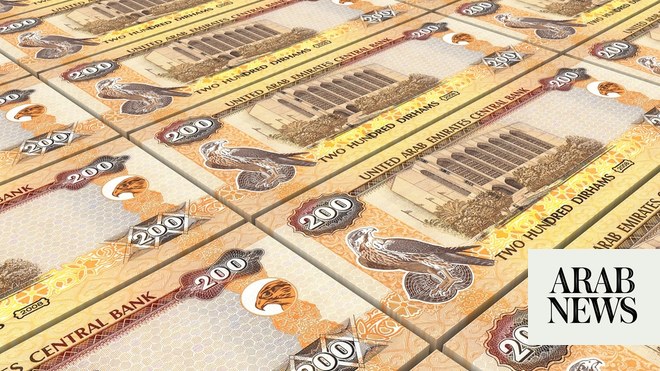
The pound was trading at 17.68 to the dollar at midday on Monday, up from 17.75 pounds on Sunday
The pound has not been this strong against the dollar since May 2018
CAIRO: The Egyptian pound strengthened slightly against the US dollar on Monday, after a nearly 2 percent rise on Sunday, and bankers attributed the increase to central bank intervention.
The pound was trading at 17.68 to the dollar at midday on Monday, up from 17.75 pounds on Sunday. The pound had previously traded at around 17.95 to the dollar.
The pound strengthened on Sunday to as high as 17.6 to the dollar before stabilising at around 17.75.
“The strengthening of the Egyptian pound is worrying and orchestrated,” said one official at a private bank in Egypt. “It has nothing to do with supply and demand.”
The central bank governor, Tarek Amer, did not respond to requests by Reuters for a comment.
The pound has not been this strong against the dollar since May 2018, according to Refinitiv data.
Amer told Bloomberg last week he expected to see a more volatile pound after Egypt ended a foreign exchange repatriation mechanism in December.
“Some fluctuations in local currency prices against the dollar were expected after ending the repatriation mechanism,” said Mohamed Abu Basha, EFG Hermes’ head of macroeconomic analysis.
“We have seen large foreign inflows at the end of last week into the debt instruments market.”
The repatriation mechanism had been put in place in March 2013 when confidence in Egypt’s ability to provide foreign currency was cutting into investment inflows.
Economists have said that terminating the mechanism would lead overseas investors to channel funds through the banking system instead of the central bank, making banks more liquid in foreign currency but also potentially causing the exchange rate to be more volatile.
But ending the mechanism and an increase in the customs exchange rate did not have an effect on the pound as expected, said one banker at an Egyptian state bank, who asked not to be named.
“So it was necessary to send a message that the market depends on supply and demand, which is what we saw yesterday,” he said referencing the strengthening of the pound seen on Sunday.
Egypt devalued its currency in 2016 as part of a three-year $12 billion IMF loan deal.
Economic reforms aimed at attracting investors who fled during the 2011 uprising, have also included new taxes and deep cuts to energy subsidies, putting the budgets of tens of millions of Egyptians under strain.












